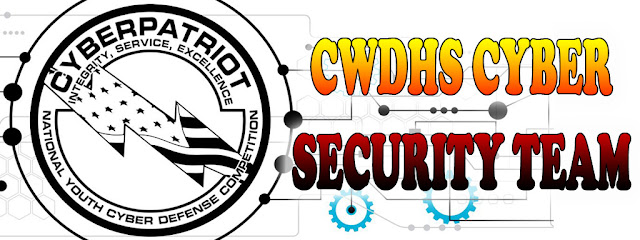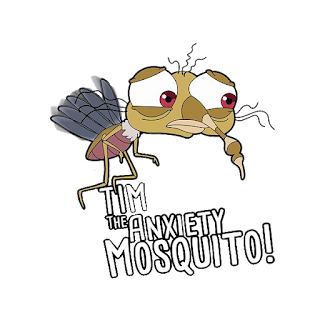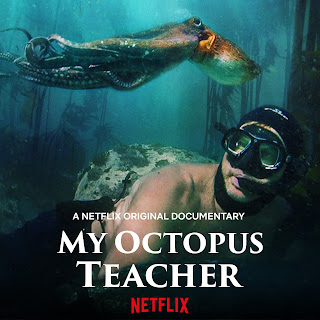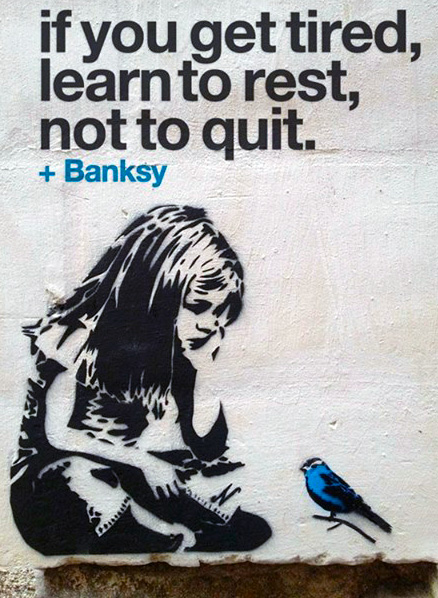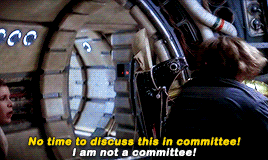I’ve been struggling to reflect my way out of another double cohorted double class semester with no breaks to plan, mark or otherwise manage a radical change in time tabling. In the face of this I’m trying to describe the situation in the hopes that verbalizing it more clearly defines it for me and helps me figure out a way to survive another quadmester of maximum COVID-classroomness.
In order to keep face to face class sizes below 21 students we are running a split day where half the class is face to face and the other half is remote, then they switch. This exhausting system has me trying to respond to remote student questions while teaching face to face all day every day. It has all the challenges of a face to face technology classroom with all the headaches of remote teaching.
The term for it when you have two double cohort classes in a single quadmester is a double-double (ala Tim Hortons). It basically means you’re teaching in two places at once all day every day.
All of my classes this year are double cohort classes. I appear to be a minority in this even though I’m one of few teachers in the school who has unique qualifications that no one else has or can teach. This means any ‘online support’ teacher I get has no facility with what we’re teaching, leaving me with the job of managing both cohorts simultaneously. Piling on this lack of equity in the workplace are the covering teachers we’re supplied with in class. They are supposed to free us from the classroom so we have some prep time to completely re-write the curriculum to suit this new format, but none of those teachers are tech qualified which means if I leave students should be taken off hands-on work (only tech teachers are qualified to cover tech safety requirements in class). Further cutting hands-on work in a year where we’ve already cut instructional time in half is problematic.
Because that’s not enough, I’m also teaching a double-double with a senior stacked class of two different grades (a double-double-double?). I’m currently unable to sleep very well and I’m frequently up at 3am, which is when I’m doing all my planning and marking because I have no other time to do it when I’m at work.
We’re not given any data on our students so I dig it all up myself. I’ve started this double-double-double with a stacked to maximum capacity of 31 students in two grades (20 in the maxed out morning cohort and the other 11 in the afternoon) senior class. This is an ‘M’ level senior technology class. In other places these are capped much lower, but my hands-on technology class is capped the same as a grade 12 university bound calculus or English class even though we’re hands on with live electricity, power tools and 400 degree soldering irons. Out of those 31 students, 26% are applied level students and 10% are essential level. 52% of students in the class have an individual education plan that demands differentiation of instruction (both online and f2f – simultaneously).
Ontario high school classes are supposed to be 110 hours long. I only get 52.5 hours of face to face instruction with my students in our pandemic quadmesters. The other 52.5 hours I’m unable to support them online because I’m face to face with the other cohort of the same class. I suggested we use the empty room next door and spread out across two classes. My non-shop regular classroom packed with technology makes six foot separation even in cohorts of 20 impossible, but spreading out across two classrooms would allow us to maintain social distancing while also providing a qualified instructor for online learning since we’d be a single cohort class (all 31 students in but spread across two classrooms means smaller cohorts in each room than with the class cut into morning and afternoon cohorts), and I’d be supporting my own students in the afternoon online.
This seemed like a reasonable ask but I got a hard “no” from above. Evidently what I teach is too dangerous for me to be able to manage students in two rooms at the same time. Not too dangerous to stuff 31 students of every skill level into a stacked class, but too dangerous to work in two rooms at the same time.
Our media arts room and even our metal shop full of lathes and other metal cutting tools that can chop your fingers off operate in two spaces walled off into two separate rooms where the teachers have to be in two places at once, but evidently I’m a special case. My students don’t warrant qualified teachers for the remote half of their class, or a safely distanced space to work in.
While I was trying to sort out a pedagogically sensible and safer solution for my senior students I’m also juggling another double cohort of grade 9s in the other week. That class is more academically leaning than my previous two classes but still rocks a 26% applied, 9% essential mix (including one DD student who is occupying almost all our in-class and remote support). Over a quarter of that class has IEPs as well.
I’m trying to keep the hands-on aspects of the course alive but finding parts in a pandemic isn’t getting any easier as we stagger through another quadmester. I have only a few PCs left for grade 9s to learn building on and what I do have is in rough shape. When I’m up at 4am I’m also contacting my usual suppliers to see if I can get any more parts in. They’re moving mountains for me but I’ll have to drive down to Brampton to pick them up because I’m not allowed to charge for shipping suddenly. Not sure when I’m going to do that.
I’m still left wearing the same mask as everyone else. The other morning I was walking down the hallway with two colleagues. If you put both of them together I’m still bigger, but we’re all handed the same mask, though I half swallow mine because it’s much too small for me. Every day I finish with a cracking sinus headache from the constant pressure. I offered to bring in my own PPE but I’m not allowed.
While all that’s all going on I also helped a science teacher get the cables she needed to run her smartboard in class, helped another with speakers so they could play things out loud in class, explained to multiple people how to get tech working online and helped yet another whose VR pc we’d previous built for them stopped working. It had stopped working because someone had gone into the PC and taken one of the memory sticks out of it – the other one was half hanging out of the motherboard (likely in the process of being stolen when someone walked in). So I’m helping that teacher get the RAM they need to get the machine working again.
I’ve also got a coop student this semester, but I can’t get her out into the school doing the usual IT repairs we do because there’s a pandemic. She’s actually a life saver in terms of being an extra set of hands in the classroom because we’ve had a number of technical issues with our DIY lab because many of the grade 9s have never used a desktop computer before and have caused many intermittent crashes that we’re trying to diagnose on the fly.
I’m one of the only teachers in the school to keep extracurriculars alive as many students depend on them, and I’m still trying to chase down awards and monetary support for our poor graduates who are trying to navigate this deepening crisis at a critical point in their lives. Even that has come back to bite me.
Last Friday I discovered that my support of female students pushing back against sexism in technology pathways was so wrong that the higher ups who said no to a more socially distanced and qualified teacher supported classroom wanted me reprimanded. Only local administration’s focus on rebuilding relationships in our school prevented that from happening. I guess I should be happy for the little things.
Last Tuesday we had a blizzard that shut down the area and caused a number of blackouts. We don’t live in an place with public transit or timely road clearing; weather can still stop things here, but that doesn’t stop the always-more treadmill we seem to be running on. Online the message was, “All students are to shift to remote learning for the day. Staff are not to report to their workplace and are to work remotely.” Meanwhile the telephone message from school said, ” school is closed and all buses are cancelled. Students and staff should not report to school, thanks and have a great day.” This mixed messaging resulted in low online engagement.
I got to spend a day I would usually be catching up on the two weeks of marking I’m behind on or trying to recreate entire courses to suit a never-before-seen timetable babysitting students with the socio-economic advantage (who are predominantly ‘academic’ level students because we stream as much by privilege as we do intellectual ability) online. The kids who didn’t have the tech or connectivity or home life conducive to online learning, or were just unlucky enough to live in the parts of town where infrastructure failed all got to come to school Wednesday already a day behind. I’m going to be the hammer for that kind of inequity any more.

I keep trying to find ways to make this work but the answer always seems to involve disrespecting the ever deepening difficulties we’re drowning in. I’ve quit being the school CBC rep because our local OSSTF district won’t reply to any questions about working conditions, even when I’m asking on behalf of other members. It’s difficult to not take this personally and I know everyone is struggling to make things work under difficult circumstances, but I’d love to know just how much of a minority I am in terms of teaching load when I’m the only one in the building qualified to teach what I teach. I’m beginning to see why unicorns died out; it’s not easy being unique.
Talking to super-students who at any other time are the epitome of initiative and drive, they tell me that they are exhausted and just don’t care any more. If the go-getters are feeling that way then I’m sure the students without that resilience and drive are in tatters. Parents of students with IEPs are asking me why their child’s grades are falling in all their classes, but saying anything about systemic inequity got me a reprimand. I’m no longer willing to be the hammer that grinds children into paste so that a broken system can pretend everything is business as usual.
If you’re a teacher and you’re reading this, everyone is exhausted. Keeping up the fiction that schools are running as usual is hurting people. Consider rewiring your classes so that you preserve and protect the children in your care. You can’t possibly expect to cover what you normally do in courses that are half the usual face to face instructional time, especially when that half is full of COVID paperwork, muzzled, frightened faces and demoralized, socially distanced lack of collaboration. The people who claim that kids need to be face to face in class haven’t been in a COVID classroom, no one is face to face. Getting students through this is now my focus. It’s also how I’ll get myself through this without ending up in hospital.
from Blogger https://ift.tt/3pFTb6D
via IFTTT














